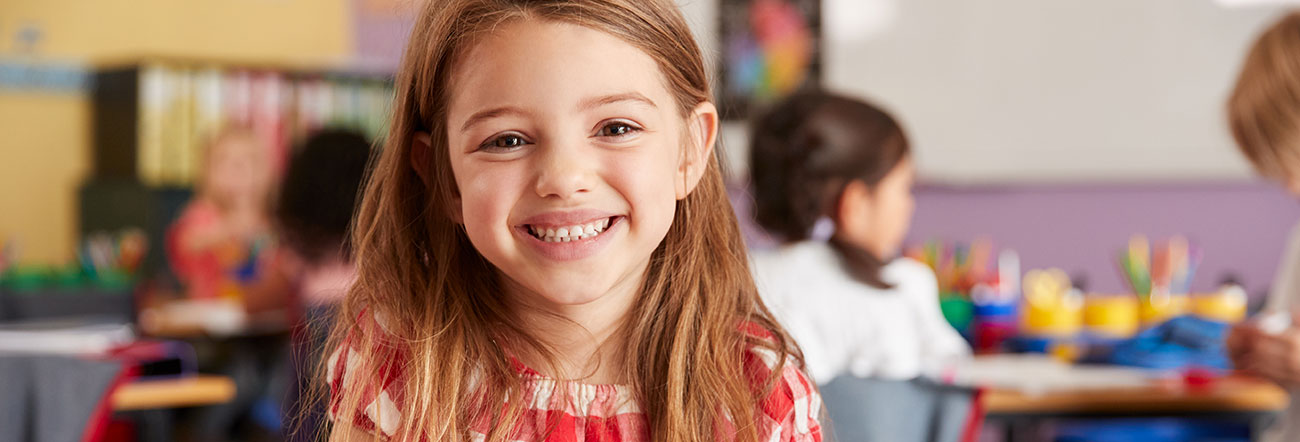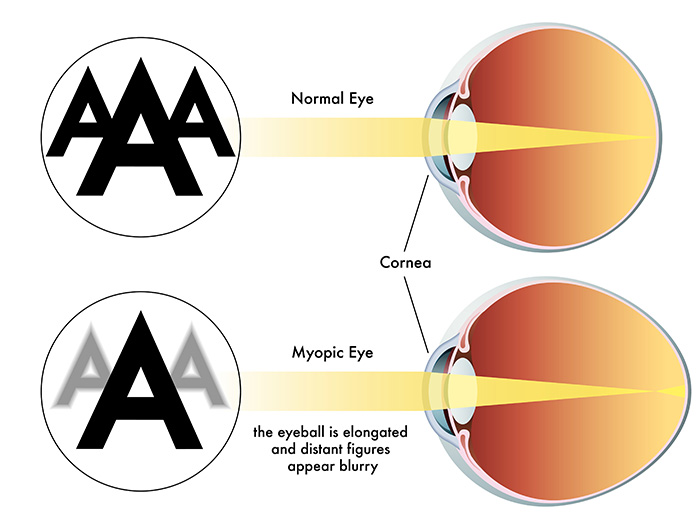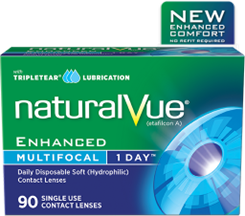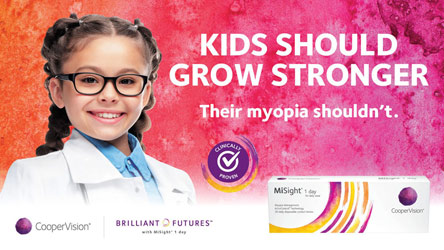
Myopia Control
Myopia is a growing problem in the population. If left untreated, myopia can get worse over time and increase your child’s risk of developing serious eye diseases later in life.
What is Myopia?
Myopia, also known as nearsightedness, is when people have trouble seeing something in the distance but can still see objects up close clearly. Someone with myopia may struggle to see writing across the room or details from afar.
What Causes Myopia?
Myopia happens when the eyeball is too long or the cornea is too curved and typically begins in childhood. If you have myopia, it is likely that one or both of your parents did, too. While the exact cause of myopia is unknown, environmental factors or other health problems, in addition to family history, can contribute to the development and progression of myopia.
There are three levels of myopia: mild, moderate, and high. When a child is diagnosed with myopia and their prescription increases every year, that means their myopia is progressing from mild to higher levels.
When progressive myopia occurs, it can cause eye strain, headaches, and fatigue after looking at objects in the distance for an extended period. Children with progressive myopia are also at a higher risk of developing eye health problems later in life such as retinal detachment, glaucoma, cataracts, or macular degeneration.
Because progressive myopia can have such a negative impact on a person’s eye health, it is important to get regular eye exams that screen for these conditions. If your doctor diagnoses myopia at an earlier stage, they can create a myopia management plan that may help your child avoid some eye health problems later in life.

What are the Symptoms of Myopia?
People who are nearsighted will notice that objects in the distance look blurry or fuzzy, while objects up close look clear. They may experience headaches, fatigue, and eye strain.
Children with myopia will hold objects closer to their face, may close one eye while reading, complain about having headaches, rub their eyes, and squint when trying to see. If your child is exhibiting any of these symptoms, you should schedule an appointment for a pediatric eye exam.
What is Myopia Control?
At Ensight Eyecare, our eye doctor may prescribe special contact lenses, eyeglasses, or prescription eye drops to slow down the progression of myopia, based on the needs of the individual. The goal of myopia control is to slow down or stop the myopia from getting any worse.
We use NaturalVue contact lenses as part of our approach to controlling the progression of myopia. Learn more about NaturalVue.


Myopia Management in Andalusia, AL
If you suspect your child may have myopia, don’t delay. Schedule an appointment for a comprehensive eye exam to start myopia management early when it will have the biggest impact.
